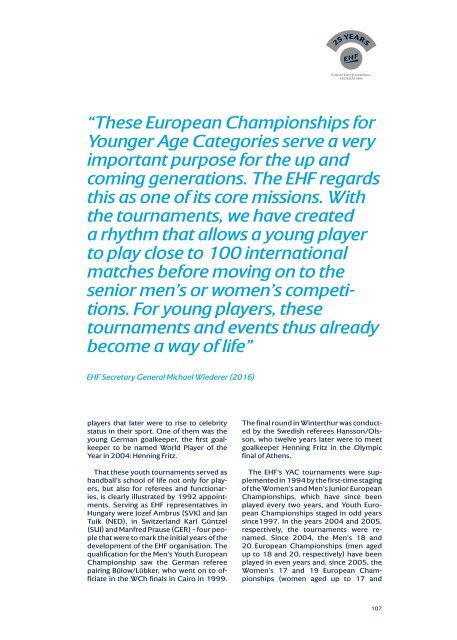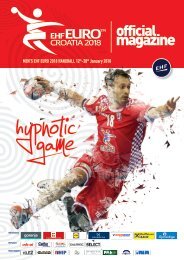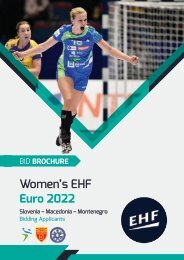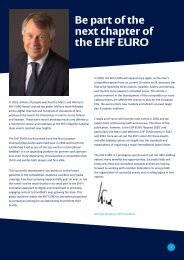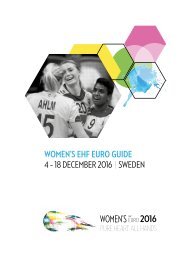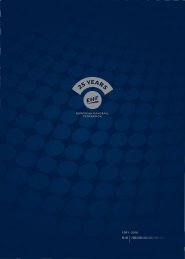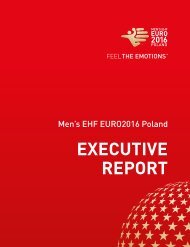ehf_25yers_book_webversion (1)
Create successful ePaper yourself
Turn your PDF publications into a flip-book with our unique Google optimized e-Paper software.
“These European Championships for<br />
Younger Age Categories serve a very<br />
important purpose for the up and<br />
coming generations. The EHF regards<br />
this as one of its core missions. With<br />
the tournaments, we have created<br />
a rhythm that allows a young player<br />
to play close to 100 international<br />
matches before moving on to the<br />
senior men’s or women’s competitions.<br />
For young players, these<br />
tournaments and events thus already<br />
become a way of life”<br />
EHF Secretary General Michael Wiederer (2016)<br />
players that later were to rise to celebrity<br />
status in their sport. One of them was the<br />
young German goalkeeper, the first goalkeeper<br />
to be named World Player of the<br />
Year in 2004: Henning Fritz.<br />
That these youth tournaments served as<br />
handball’s school of life not only for players,<br />
but also for referees and functionaries,<br />
is clearly illustrated by 1992 appointments.<br />
Serving as EHF representatives in<br />
Hungary were Jozef Ambrus (SVK) and Jan<br />
Tuik (NED), in Switzerland Karl Güntzel<br />
(SUI) and Manfred Prause (GER) – four people<br />
that were to mark the initial years of the<br />
development of the EHF organisation. The<br />
qualification for the Men’s Youth European<br />
Championship saw the German referee<br />
pairing Bülow/Lübker, who went on to officiate<br />
in the WCh finals in Cairo in 1999.<br />
The final round in Winterthur was conducted<br />
by the Swedish referees Hansson/Olsson,<br />
who twelve years later were to meet<br />
goalkeeper Henning Fritz in the Olympic<br />
final of Athens.<br />
The EHF‘s YAC tournaments were supplemented<br />
in 1994 by the first-time staging<br />
of the Women’s and Men’s Junior European<br />
Championships, which have since been<br />
played every two years, and Youth European<br />
Championships staged in odd years<br />
since1997. In the years 2004 and 2005,<br />
respectively, the tournaments were renamed.<br />
Since 2004, the Men’s 18 and<br />
20 European Championships (men aged<br />
up to 18 and 20, respectively) have been<br />
played in even years and, since 2005, the<br />
Women’s 17 and 19 European Championships<br />
(women aged up to 17 and<br />
107


